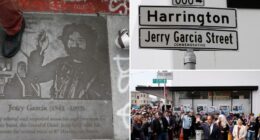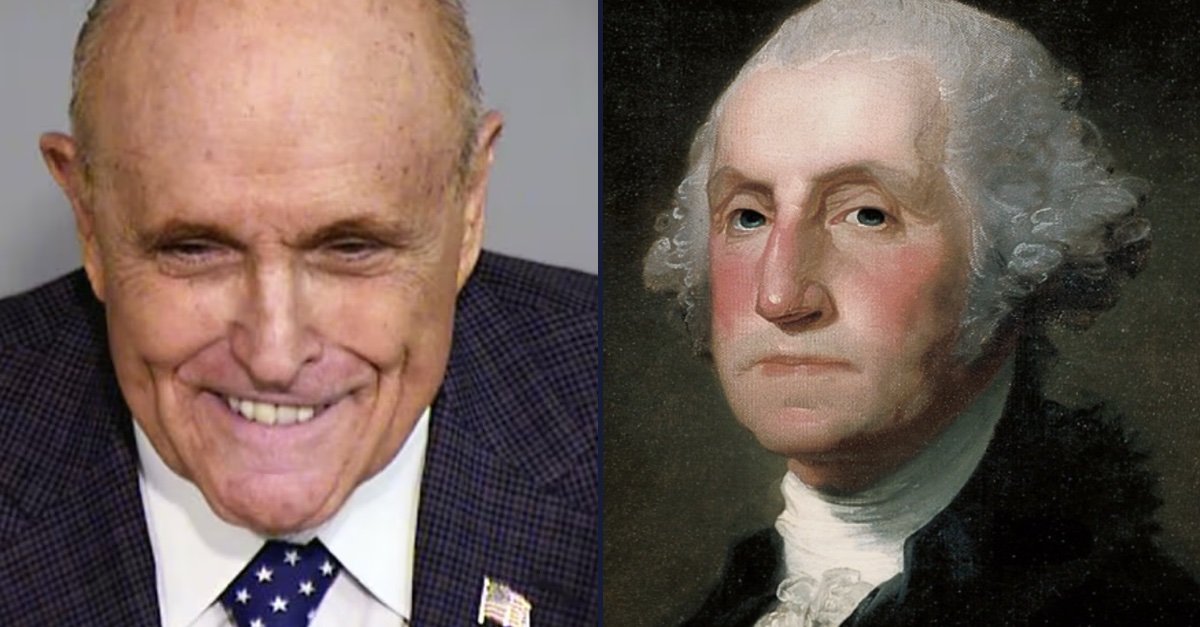
Left: Rudy Giuliani (Maricopa County Sheriff’s Office). Right: A painting of George Washington (AP Photo/Corcoran Gallery of Art).
Even while granting the relief sought for “good cause,” a court didn’t take kindly to the “irrelevant characterizations” that Rudy Giuliani’s defense lawyer included across two pages of a recent request to modify the former NYC mayor’s release conditions in the ongoing Arizona fake electors criminal case. Those pages, 4 and 5, included lines comparing Giuliani’s patriotism and heroism after 9/11 to that of George Washington, the first president of the United States, during the stressful time that was the American Revolutionary War.
“For example, George Washington led Patriotic forces to victory during the American Revolutionary War at a time of great national turmoil and stress. George Washington’s endurance, swift action, and determination saved this nation and he will forever be a great American Hero,” wrote attorney Mark Lee Williams. “Similarly, Mr. Giuliani was Mayor of New York City on September 11, 2001 when the terrorist attacks on the World Trade Center occurred. Mr. Giuliani was a great leader who coordinated the responses of various New York City departments and simultaneously organized the support of state and federal authorities for the World Trade Center location, for city-wide anti-terrorist measures, and for restoration of destroyed infrastructure. Mr. Giuliani worked with first responders to help save many lives.”
On the next page, Williams said that Giuliani is likewise a “great American Hero and Patriot whose endurance, swift action, and determination inspired all people in the United States during a time of great national turmoil and stress,” and so it would be unreasonable to subject him to pretrial release conditions that no one would have countenanced requiring of Washington had he ever been indicted.
“Would anyone think it necessary to require George Washington to reside in a particular state and not leave that state without the permission of the court if charges were filed against him in that state during his life?” Williams asked before answering his own question. “The answer is an emphatic ‘No!’ Then the same is true for Mr. Giuliani.”
The defense’s July 12 motion and Judge Bruce Cohen’s ensuing order from six days later, first spotted by Politico’s Kyle Cheney, were uncontroversial in the sense that Arizona prosecutors did not oppose removing or modifying pretrial release conditions barring Giuliani from contacting co-defendants. Nor did prosecutors oppose removing language stating that Giuliani, a non-Arizona resident, had to “reside at [his] present local residence” and get “court permission” before leaving the state.
More Law&Crime coverage: ‘The Signing’ comes back to haunt Arizona fake electors and some of Trump’s closest advisors, as indictment shows ‘legal exposure’ worries were scoffed at
Williams had additionally asserted that Giuliani should be able to contact co-defendants because he is a “Patriotic American who is very involved in American politics and there is or may be a need for him to communicate and have contact with the other co-defendants (who are also very involved in politics) in this case especially as the elections are not that far away.”
Since Giuliani doesn’t have a residence in Arizona, and because prosecutors didn’t oppose Giuliani’s request, Cohen had no issue deleting the no-contact and “court permission” conditions and no problem clarifying that Giuliani “may reside in Florida or New York,” where he currently has properties, as the case moves forward.
But the court evidently felt the need to clarify as well that the “irrelevant characterizations” that Williams included in the motion, lines that were “not germane to the issues before the court,” played no rule in the ruling.
The judge went so far as to remind Williams of the Rules of Professional Responsibility, “including ER 8.4(D), which restricts a lawyer from engaging in conduct that is prejudicial to the administration of justice.”
“Consistent with principles of equal protection under the law, Defendant Giuliani is not entitled to greater or lesser consideration of requested relief because of his alleged status or stature,” the order said. “Any suggestion to the contrary goes against all concepts of justice. Going forward, the court expects all parties to limit their filings and arguments to cognizable claims that are supported by relevant facts and law.”
A Law&Crime search for Mark Lee Williams in the Arizona attorney directory showed that he was reinstated in February from a 60-day suspension that began in December 2023, reportedly in connection with his cross-examination of an alleged sexual assault victim and her mother.
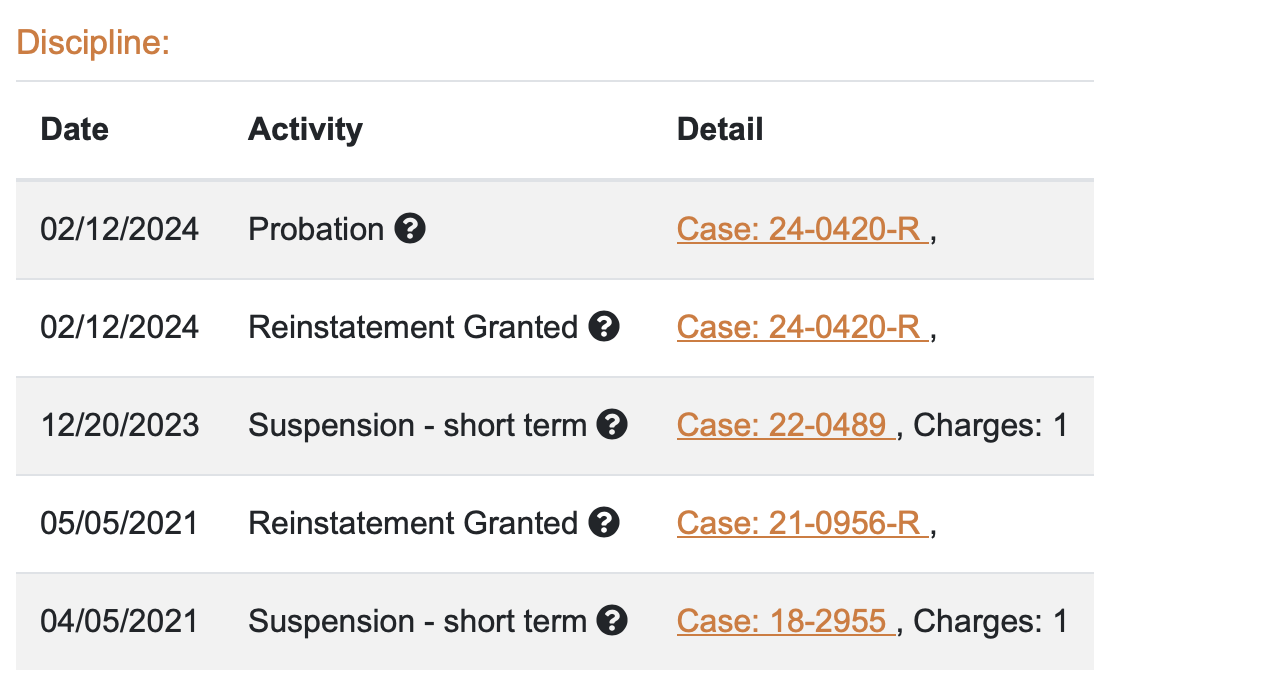
Court documents say that an agreement was reached after Williams admitted violating several rules — including the one Cohen would remind him of roughly five months later. Documents said Williams “accept[ed] responsibility and the consequences for his actions” and acknowledged he is “not perfect and recognizes he could have done things differently.”
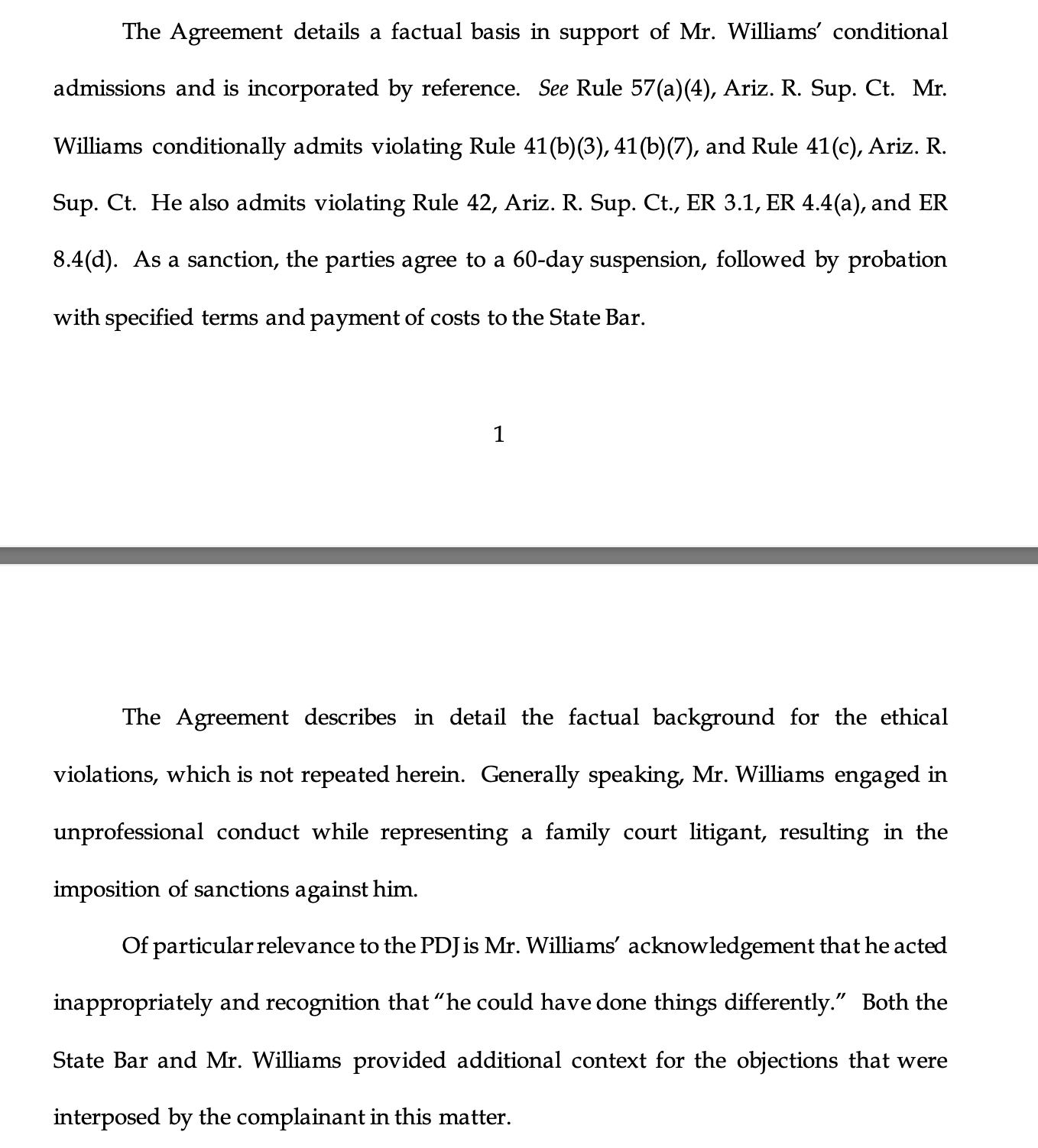
Williams was reinstated from suspension effective as of Feb. 18, records showed. The six-month probation period was set to begin upon reinstatement, court documents said.
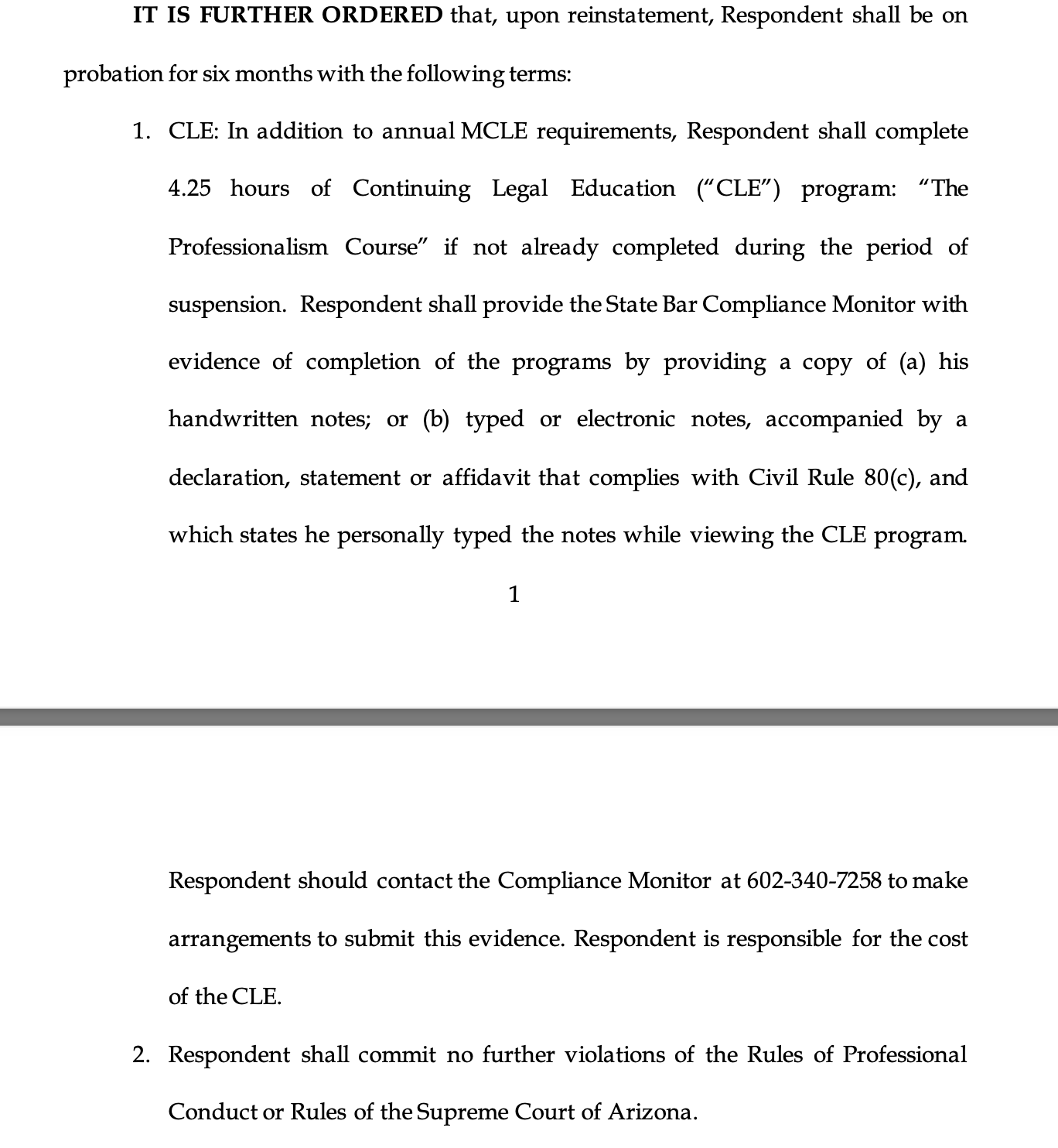
Law&Crime reached out to Williams for comment.
Giuliani has pleaded not guilty to the Arizona charges, which his adviser Ted Goodman has also called an attempt to “interfere with the 2024 election and to take down President Trump and anyone willing to take on the permanent Washington political class.”
Have a tip we should know? [email protected]







